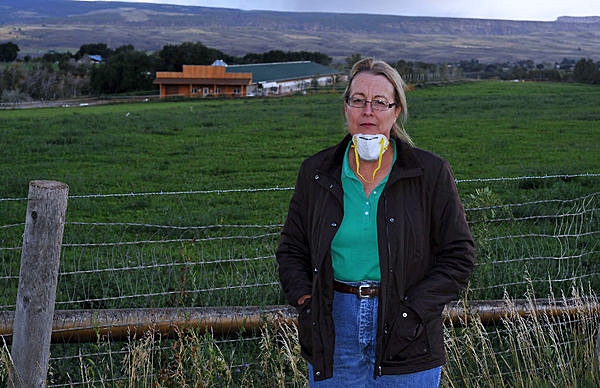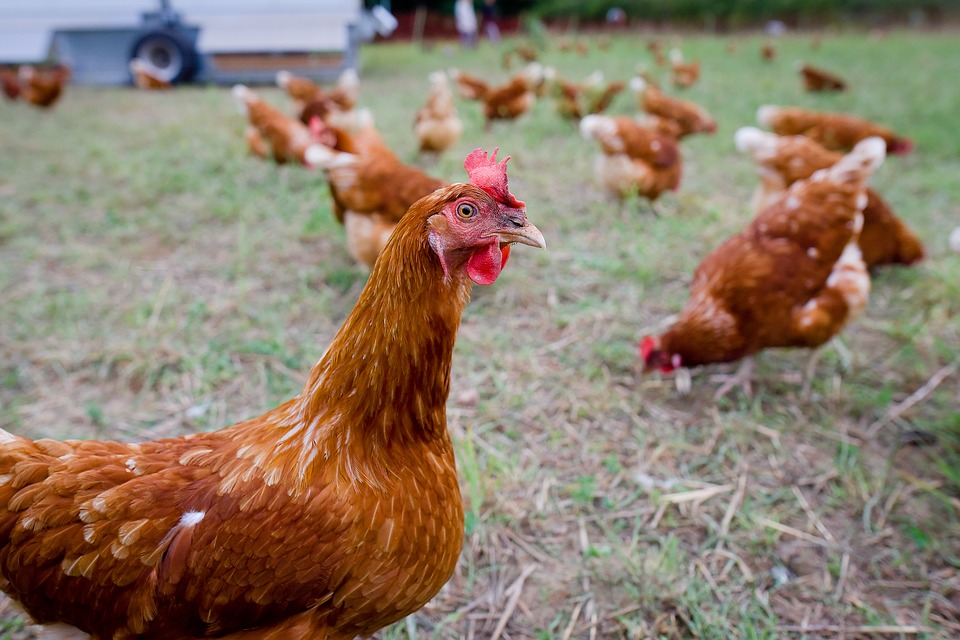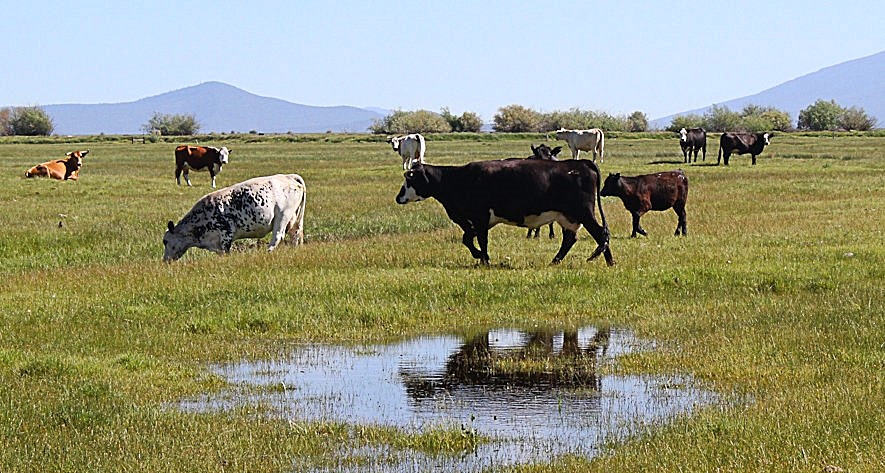If the ‘animal rights’ movement’s objectives of ending animal agriculture and crushing this family-owned chicken farm to make an example of them are , indeed, driving this protracted and costly case, the plaintiffs may have already won their victory. Despite the outcome of the trial, punishing a quiet family of farmers who have acted in good faith, followed the law, and complied with all court dictates, by taking them to court at a cost of $750,000 over the last few years, is a hell of a deterrent to others looking at opening their own operations.
by Marjorie Haun
The case of the organic chicken farm vs. ‘sensitive’ neighbors is currently being tried in Delta County court, and what should be a clear-cut property rights issue has become a tale of paranoia, bizarre claims, and dubious evidence. The trial could go on for two weeks, longer than most murder trials, and will involve testimony from the primary ‘sensitive’ neighbor whose complaints have dogged a family-owned organic chicken house for years, and cost the family three-quarters of a million dollars in legal fees.
Olen Lund, President of the Delta Farm & Livestock Bureau, briefly detailed the case in a letter to Forrest Lucas of Protect the Harvest:
The first lawsuit, alleging inappropriate land use, culminated with a favorable ruling by the Colorado Court of Appeals when the Colorado Supreme Court refused to hear the case. But unfortunately, a subsequent suit alleging civil trespass was filed. The trial of that case has been postponed several times and is now scheduled for May of 2017.
The legal battle began on July 20, 2012 when the Delta County Commissioners approved a land use change application for an organic, free range, chicken egg laying facility to be located just north of Hotchkiss, Colorado. A group of neighbors immediately, with the apparent backing of a national animal rights group, filed a lawsuit against the owners of the chicken house and the Delta County Commissioners making several allegations, basically centered around the idea that the facility was not agricultural, but really a “factory farm”.
After much legal wrangling the Colorado Court of Appeals overturned the Colorado 7th Judicial District verdict against Delta County and the chicken house owners. Subsequently the Colorado Supreme Court refused to hear the case. The definition of agriculture and validity of the Right to Farm Ordinances and Statutes of Delta County and the State of Colorado were ratified. The facility was repopulated with chickens in October of 2014.
The main opponent of the chicken house has stated that she doubts that she can win, so is trying to bankrupt the private property holder. Even before the conclusion of the appeal of the first lawsuit a second suit was filed accusing the chicken house of civil trespass (the plaintiffs held that dust was escaping from the chicken house and damaging their health). The trial of that lawsuit is now scheduled for May of 2017 after having been postponed several times. The civil trespass lawsuit has proved costlier for the defendants as it has involved more fact finding, depositions gathering, and expert witnesses.
Lund sought the help of Protect the Harvest, a group which defends farmers and ranchers against the actions of ‘animal rights’ groups such as those cited in his letter. He expresses great concern about the precedent that could be set if the plaintiff should prevail in this case, not to mention the intimidation resulting from crushing legal costs incurred by the defendants. The letter continues:
Some $750,000 in legal fees have accrued so far in this legal battle to preserve private property rights and the rights of a family to raise chickens on their property. Their employment of best management practices seems to be irrelevant as the legal case continues to drag on and the legal bills pile up.
If the plaintiff’s position prevails, the precedent set for agriculture, and private property rights in general, could be disastrous. A disgruntled neighbor, or purposeful activist group, would have precedent to single out a single operator and legally “hound” them to their demise. The primary allegation in this case is that the defendant’s chicken house raises dust, and we all know that every ag operation, in fact every action of even the wind, raises dust. If the use of best management practices is not acceptable, the future for family farm agriculture is grim indeed.
- In August of 2011, the Hostetler family sought approval from Delta County for their chicken farm.
- In September of 2011, before the farm was operational, a group of neighbors, apparently with Susan Raymond in the lead, filed the first lawsuit. Despite the opposition, Hostetler got approval from the County to continue building the facility.
- Shortly thereafter, in March of 2012, Raymond, filed an injunction to cease operations at the chicken house. The first injunction was denied. Delta County District Judge, Steven Patrick, then remanded the case back to the Board of County Commissioners for further review, which again gave thumbs up to the operation.
- In November of 2012, Raymond filed a second lawsuit against Hostetler and the County. After a series of legal maneuvers and hearings, Delta County again gave the go-ahead for the chicken house in May of 2013.
- In September, Judge Patrick ruled against the County’s approval process, and ordered operations at the farm to cease.
- In October, the Hostetlers along with Delta County, appealed the judge’s decision.
- In December of 2013, operations ceased, and strangely, neighbors filed a complaint with the County Sheriff that too much noise was being made as the chickens were removed from the facility.
- Despite the closure of the chicken farm, in April 2014, Susan Raymond filed a complaint of trespass and suit alleging that her nearby property had been contaminated with hay, dust, feathers, bacteria and mold from the chicken farm. The court ordered mediation on the trespass complaint, but no resolution was met.

By that time, the case had captured the attention of Colorado’s Governor, John Hickenlooper, who, in spite of vague ‘health concerns’ cited by the complainants, issued an amicus brief in support of the chicken farm. The Governor’s office asserted that Judge Patrick’s ruling ‘contradicts the state’s “Right to Farm law.” In February of 2014, the Daily Sentinel reported:
In an amicus brief filed Friday with the Colorado Court of Appeals, Gov. Hickenlooper, the Colorado Department of Public Health and Environment, and the Colorado Department of Agriculture all lend their weight to supporting the pending appeal filed by Delta County commissioners and the Hostetler family.
The governor’s office and the state agencies’ defense of the farms’ multiple approvals by Delta County commissioners is whittled down to two key arguments: That the operating farm did enough to neutralize environmental impacts, and that Judge Patrick’s district court ruling contradicts the state’s Right to Farm law.
Then, in an act that can only be described as paranoid, the plaintiff’s attorneys issued a subpoena to the defense demanding a long list of documents potentially exposing private conversations and the identities of private citizens, including; all documentation, financial records and correspondence, agreements, receipts and checks related to legal expenses; all documents related to communications between the defendants and their attorneys; all documents related to the planning and execution of fundraiser and charity events held to assist with legal costs; identification of ‘all attendees, volunteers, and staff present’ at fundraisers in 2013 and 2015; records of all donations including names of donors and amounts collected in the 2013 and 2015 fundraisers; all records of conversations relating to communications regarding Hostetler, Western Slope Layers, LLC/ and or Susan Raymond; and on, and on.
Despite the fact that in October of 2014 the appeals court overturned the decision against the chicken farm, and a year later in October of 2015, Delta County and the Hostetlers won a victory when the Colorado Supreme Court declined to hear the case brought by Raymond’s attorneys, the ‘sensitive’ neighbor pressed on. The trial now taking place in Delta County stems from the previous lawsuit citing ‘trespass’ by mold, bacteria, dust and chicken feathers. Further complicating the case are assertions from the plaintiffs that the Hostetler’s organic, free-range chicken operation is actually a factory farm. Political agendas, not evidence, appear to be driving the ‘trespass by chicken feathers’ and factory farm accusations. The National Association of Egg Farmers posted the following on their website:
If the ‘animal rights’ movement’s objectives of ending animal agriculture and crushing this family-owned chicken farm to make an example of them are indeed driving this protracted and costly case, the plaintiffs may have already won their victory. Despite the outcome of the trial, punishing a quiet family of farmers who have acted in good faith, followed the law, and complied with all court dictates, by taking them to court at a cost of $750,000 over the last few years, is a hell of a deterrent to others looking at opening their own operations.
The trial of the family-owned, organic, free-range chicken farm vs. animal rights activist neighbors with a radical agenda is scheduled through through June 2, at the Delta County Courthouse, 501 Palmer St # 338, Delta, CO 81416.




Plantiffs should pay all legal bills if they loose. This would reel back in these radical agenda driven groups from slamming their ideology down our throats. Sue and settle should also be addressed since these groups finance their my way or the highway mentality with such tactics.
Wow, this is an incredible wrapping of the facts. The truth is BOTH sides got outside help…your “quiet farm family” got a boatload of money from the Colorado Farm Bureau and many others, while your animal rights group helped advise a small rancher and neighborhood vet (who actually filed the case) fight for the right to breath crap-free air on land she’s owned for decades! This story has NOTHING to do with animal rights OR the right to farm! County Commissioners ignored recommendations to deny this application from both their Area Planning Committee and their County Planning Commission…not to mention high-ranking county staff because the application DID NOT FOLLOW COUNTY POLICY — so much for being lawful.
In the end, all this case is doing is pit neighbor against neighbor, divide a community and fuel a lot of suspension about our local government’s conflict of interest.
This piece is a perfect example of ugly muck-raking. You should be ashamed!
Bullpucky, this was nothing but an attack on a peaceful, hardworking, productive family by a neighbor who attempts to control everyone around her property and then sues everyone around her when that is uncessful! This was totally about the right to farm and provide a great product. The only great thing about this whole fiasco is that the jury took less than an hour to return a verdict against those who would harm anyone around them that had a different philosophy. Sue lost big time!
The community sincerely hopes that the Hostetler’ s are awarded their leagle costs, and their business losses.
Turns out that the ELECTED county commissioners were correct in in in allowing this important business in Delta County!!!